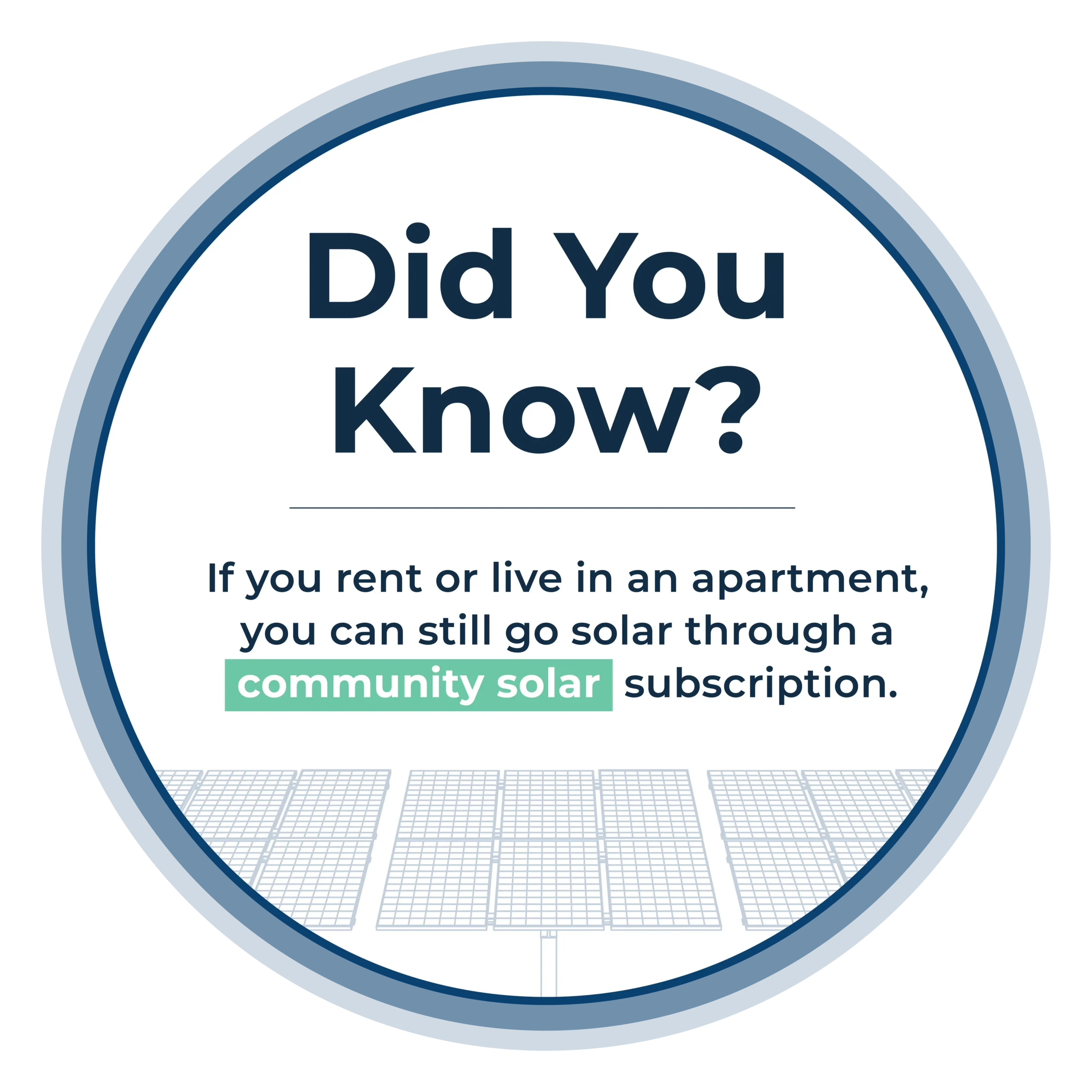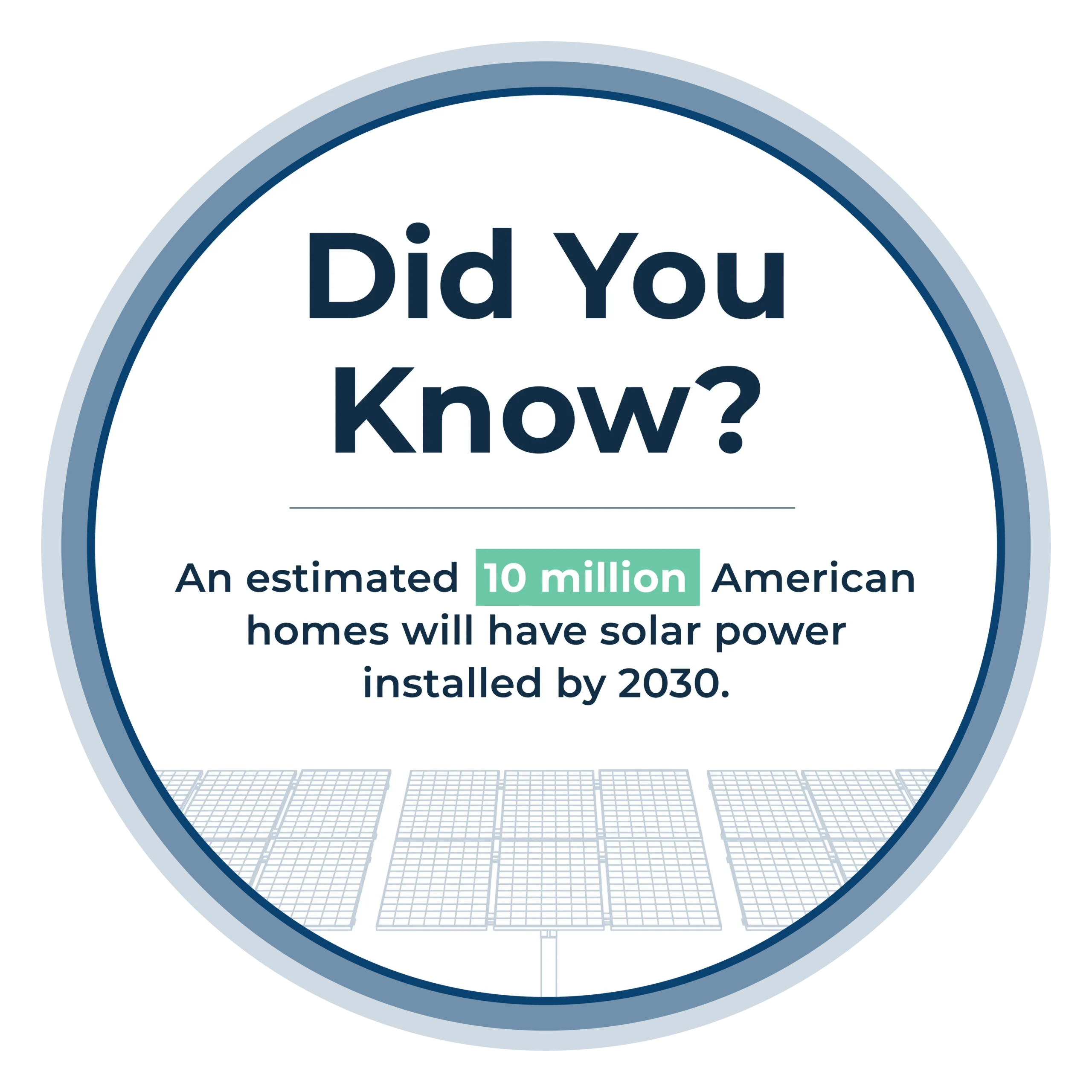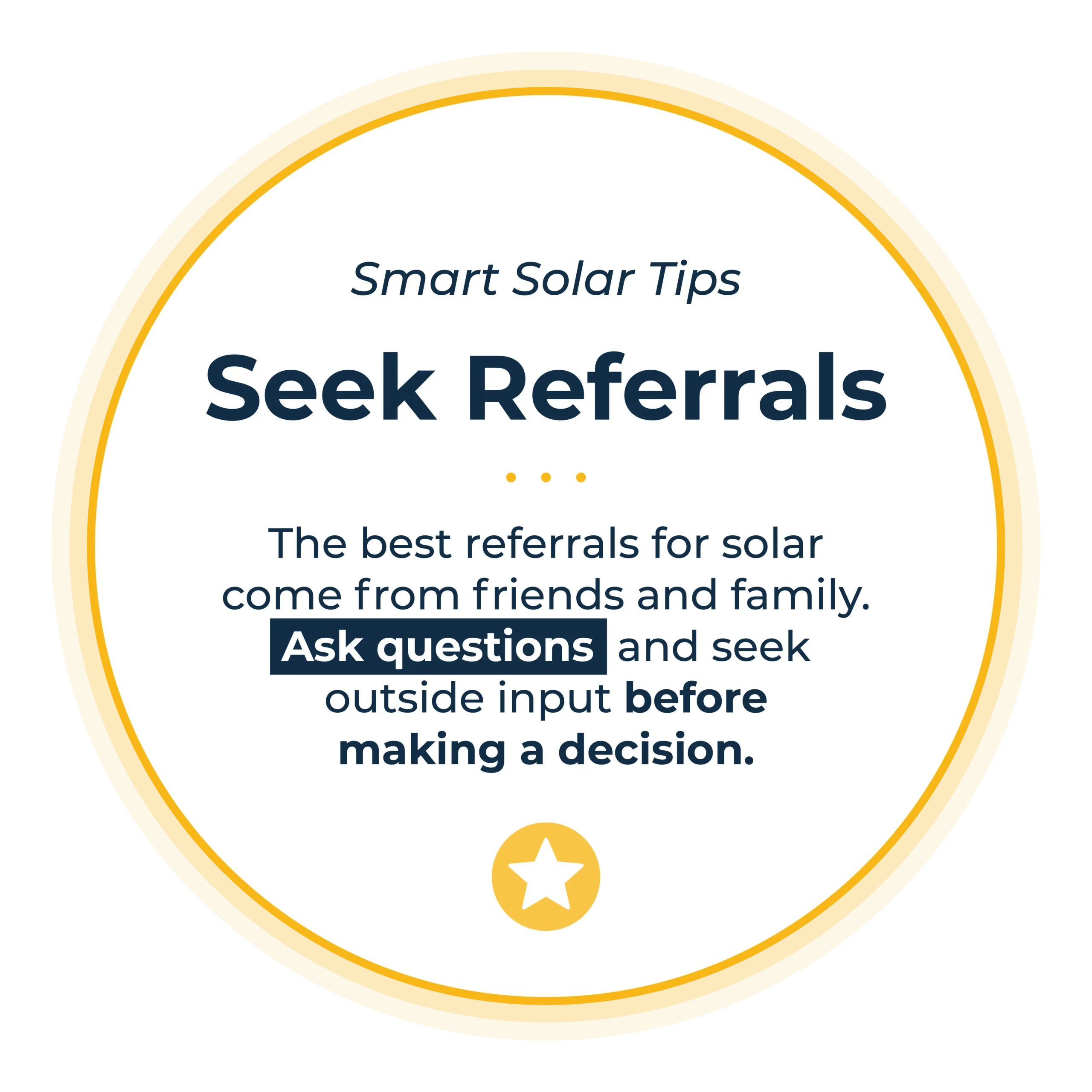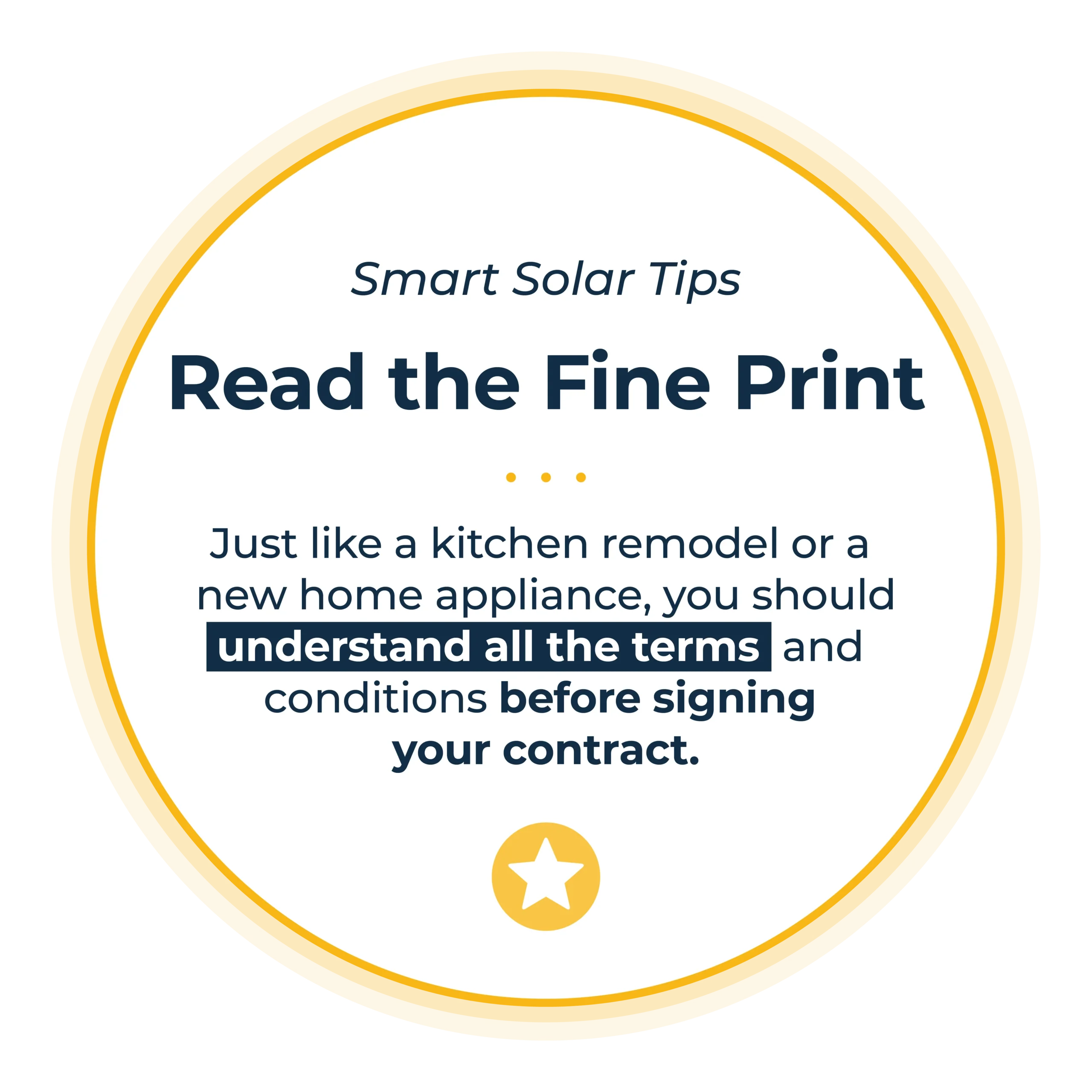The
Smart Solar
Guide
All the Resources You Need to Go Solar
Getting Started

Getting Started
Understand your electricity needs and costs.
Take a look at your utility bills. You should understand how much you typically pay per month and what you pay per kilowatt or kilowatt-hour. You should also consider your future electricity needs.
Determine if you have a suitable home for solar.
The amount of solar your roof can produce depends on your location, orientation towards the sun, and shading from trees or neighboring buildings.
Estimate potential cost savings.
To see your potential savings, use an online savings calculator. Check out Google Project Sunroof to get a personalized estimate or comparison shop with an online marketplace.


Compare Solar Providers
Always get multiple quotes.
- As with any major purchase, you should get multiple quotes from different solar companies and compare them.
Check references.
- Look at customer reviews and talk to your neighbors about their experience going solar.
- Check if the company is a member of the Solar Energy Industries Association (SEIA). All companies must abide by SEIA’s strict ethics code. You can also look at company ratings on the Better Business Bureau and other review sites.
Over 5 million Americans across all 50 states have added solar to their homes and are now saving thousands of dollars on their electricity bills every year.
However, going solar is a major purchase and you should have a clear understanding of all the solar options available to you before you make a decision for you and your family.
Use this guide to get started on your path to going solar.


Determine Your Solar Options
If you want to put solar panels on your home.
- Similar to buying a car, you will need to determine if you want to own or lease a home solar system.
- To own, you can buy the panels with cash or enter into a loan agreement.
- If you want to rent your solar system, you can lease the panels or enter into a long-term contract for the amount of solar electricity you use each month.
- Consider energy storage if you want to power your home around the clock with clean energy, even if the grid goes down.
If you can’t put solar panels on your home.
- There are other ways to access the benefits of solar.
- If you rent or live in an apartment complex, in most states you can enter into an agreement to subscribe to an off-site solar project, known as community solar. Once you’re subscribed, you receive a credit on your electricity bill.

Schedule a Home Visit and
Ask the Right Questions
Don’t hesitate to ask questions — you’ll be glad you did.
Here are a few key questions to ask your solar installer
- Can I expect to save money on my electricity bills with this system? If so, how much?
- What is the total cost of the solar system and what is the payback period?
- What is this estimate based on? What assumptions are you using to create the estimate?
- How much do I pay upfront and over time? How long will I make payments? What is the system size?
- What incentives am I eligible for?
- What is the system size? How much electricity will the system generate each year?
- How much electricity will the system generate each year?
- Will I be compensated for excess electricity generated by the system?
- Is there a warranty? If so, what does it cover and how long does it last? Can I expect to save money with this system? If so, how much?
- What type of maintenance or cleaning is required for solar panels in my area?
Check out SEIA’s Consumer Guide to Home Solar for more example questions.
Understand Your Agreement and Available Incentives
All solar purchases include contracts, so make sure you take a close look at your agreement before moving forward.
Understand the terms of your agreement.
- How much will you pay upfront? How much per month?
- How long does this contract last for?
- Will you own the panels or lease them?
- What happens if you cannot pay? What is the company entitled to as collateral?
Check out SEIA’s Consumer Guide to Home Solar for more example questions.
Maximize your incentives.
- Through the rest of 2025, the solar Investment Tax Credit (ITC) is a 30% federal tax credit available to the owners of solar installations. This tax credit can help to lower payback periods and improve solar accessibility.
- The solar ITC is NOT a rebate. You must owe taxes to take advantage of this incentive.
- Your system must be installed by December 31, 2025 in order to access the tax credit
- There are a variety of state incentives for solar power and energy efficiency improvements.
- Be mindful of “tax schemes.” Unscrupulous businesses may push dubious tax schemes, such as encouraging individuals to purchase business tax credits. Don’t fall for it. Always check with a trusted. licensed tax professional for advice about how tax benefits may apply to your situation.

Set Yourself Up for Decades of Success
Caring for your solar panels.
- Because solar arrays have no moving parts, maintenance is straightforward for a customer. Talk with your solar company about any annual maintenance that you are entitled to in your agreement.
Your panels could last for 30 years or more.
- Solar panels are a long-term investment in your home. Be sure to understand your warranty and who to contact if your system is not working properly.
- If you plan to sell your home before the end of your solar lease, check with your company before signing your contract.
Smart Solar Tips



